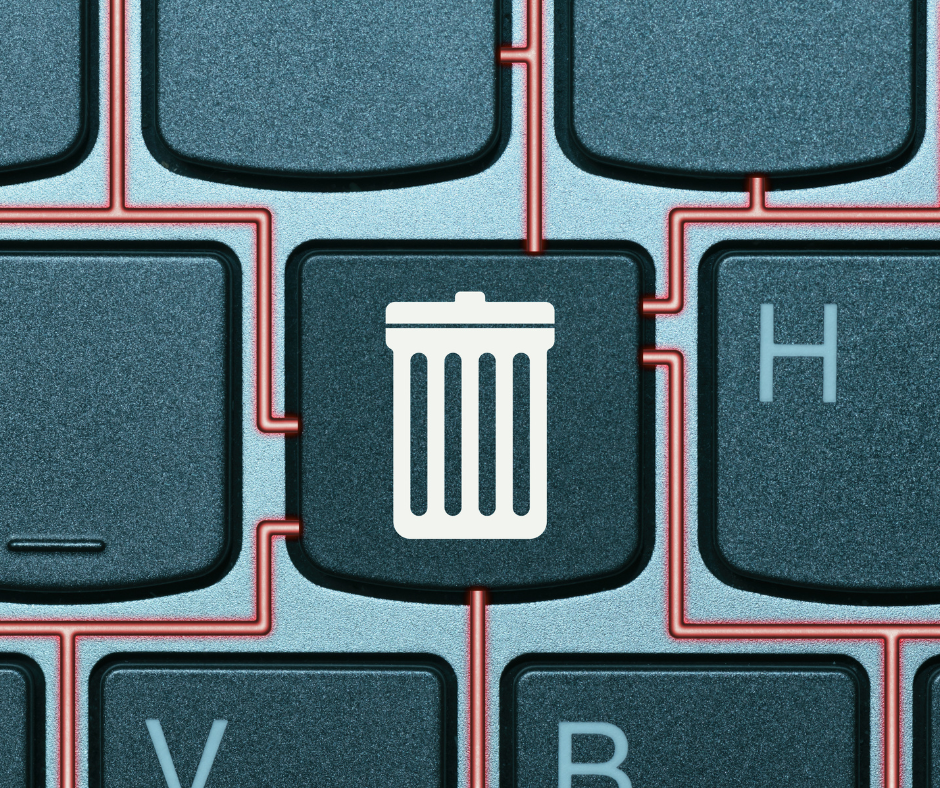
The Importance of Data Deletion
Digital data can accumulate like junk in your basement. The spring season is the time of year for you to clean out that basement, so you might as well sweep the digital basement too. Purging data is the act of deleting data, while archiving is the act of preserving it. Both are recommended duties to perform routinely or at least yearly. Depending on your organization or department, you may be bound by regulations to preserve and/or archive some data. Data that does not have to be archived should routinely be purged, especially if it contains PII or sensitive information that can put individuals or the organization at risk. Data that is archived but exceeds the preservation date should also be purged.
Some of the benefits to purging data are below
- Improves overall system performance. Simply by reducing the data a query has to look through can speed up your processing time. Reducing disk utilization improves optimization as well. Less disk space utilization also means a reduced backup window.
- Data Management can be improved by removing duplicates as you perform the clean up process. A Document Management system is an excellent choice to use as an archiving solution. It makes data more secure and searchable. It can also reduce file sizes by standardizing the format.
- It is especially important to purge or redact PII Data. If sensitive data must be stored, then it should be encrypted. This will help reduce the risk of compromise, whether by ransom in the form of malicious encryption or exfiltration.
- Ediscovery is a process used to collect any analyze a wide variety of data. In the event of a lawsuit, any pertinent data that is retrievable is subject to collection. Your preserved data could help or harm the situation, but a good records retention policy can help protect the organization in either situation.

Why Archive or Preserve At All?
One of the most difficult things for departments to deal with today is staff turnover. Many department supervisors want to preserve the work that was performed by a past or terminating employee. This is important especially when your organization is trying to keep business continuity. Many times efforts are made to preserve this data and often it is placed on a shared drive. The problem here is that if no one goes through and organizes or purges this data it can hang around for long periods of time. If someone has left the organization, their data is still dormant and the organization is left responsible for its security. It is best practice to designate their replacement with the task of cleaning up unneeded files.
Data should be stored securely whenever archiving is performed. Utilizing a proper archiving system is important because it can prevent the accidental deletion of data. It is recommended to have a clause in your records retention policy such as, “When a file is deleted, do not delete the copy from the archive for 90 days.” This will protect from accidental deletion.
John Schaeffer
Reference
Pawar, S. (2016, November 18). 5 Key Benefits of Data Purging and Data Archiving. Linkedin. https://www.linkedin.com/pulse/5-key-benefits-data-purging-archiving-shekhar-pawar/

